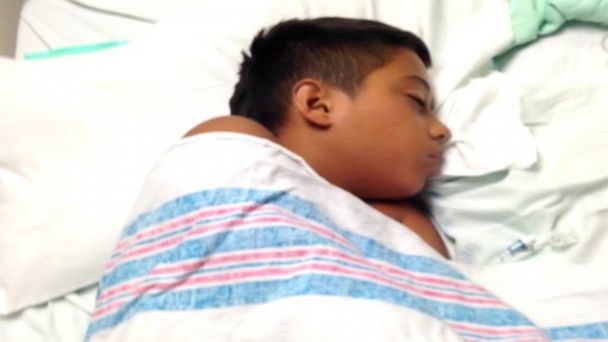Florida Boy, 12, Contracts Brain-Eating Amoeba
A 12-year-old Florida boy is in intensive care after becoming infected with a deadly brain-eating parasite.
Zachary Reyna has been diagnosed with primary amoebic meningoencephalitis, a rare form of meningitis caused by the amoeba naegleria fowleri, according to ABC News Fort Meyers, Fla., affiliate WZVN-TV.
Zachary's brother, Brandon Villarreal, spoke to WZVN about how the family first thought the young boy had a virus. But when they realized Zachary was sleeping all day and all night, they realized it was something worse.
"I wish I could just touch him and it would transfer over. It don't work like that," Villarreal told WZVN. "It's just tough to see him like this."
The Glades County health department confirmed the case this weekend and announced the diagnosis Monday in a news release. The infection is usually fatal, according to the release.
"This is a very rare occurrence," county health department spokeswoman Brenda Barnes told ABCNews.com. "This amoeba is out there. It could be anywhere in any warm, fresh water."
The boy was at Miami Children's Hospital's ICU as of Monday night, according to WZVN.

Zachary Reyna is in intensive care after becoming infected with a brain-eating parasite. (Image Credit: ABC News)
A Facebook page set up to support Zachary includes the hashtag #pray4number4 because his baseball jersey is No. 4.
The amoeba infects people when they take in contaminated water through the nose, according to the Centers for Disease Control and Prevention. They do not get it by drinking contaminated water.
Officials don't know where Zachary got the parasite, which usually takes up to a week to cause symptoms. His diagnosis follows that of 12-year-old Kali Hardig, who is thought to have contracted the same parasite at an Arkansas water park.
Read more about Kali, who is still fighting.
To reduce the risk of contracting the deadly amoeba, health officials said there are a few things swimmers can do:
- Try to keep water from going up their noses;
- Avoid warm freshwater when the water temperature is high and the water level is low;
- Avoid stirring up sediment in shallow water.